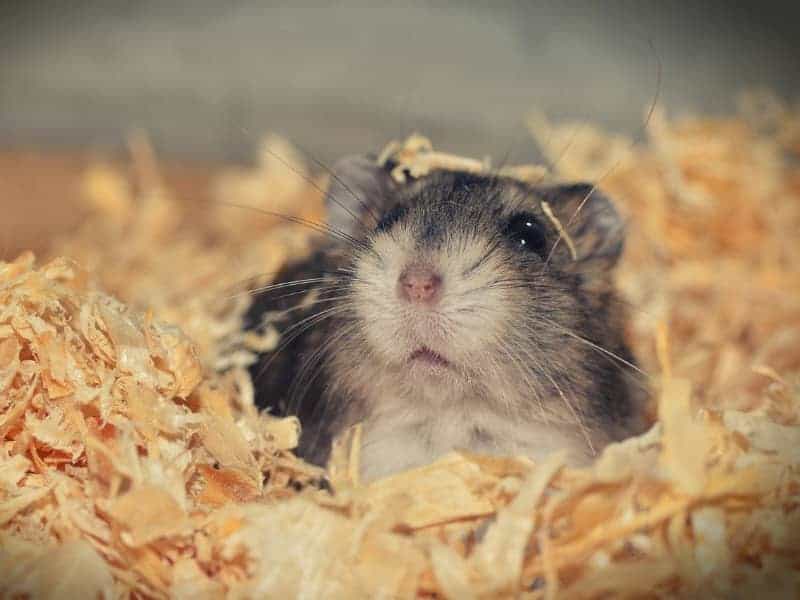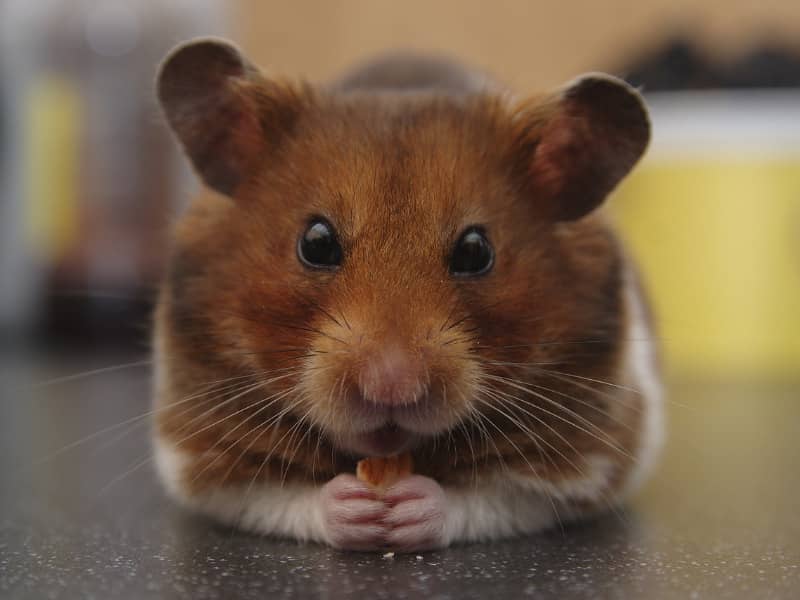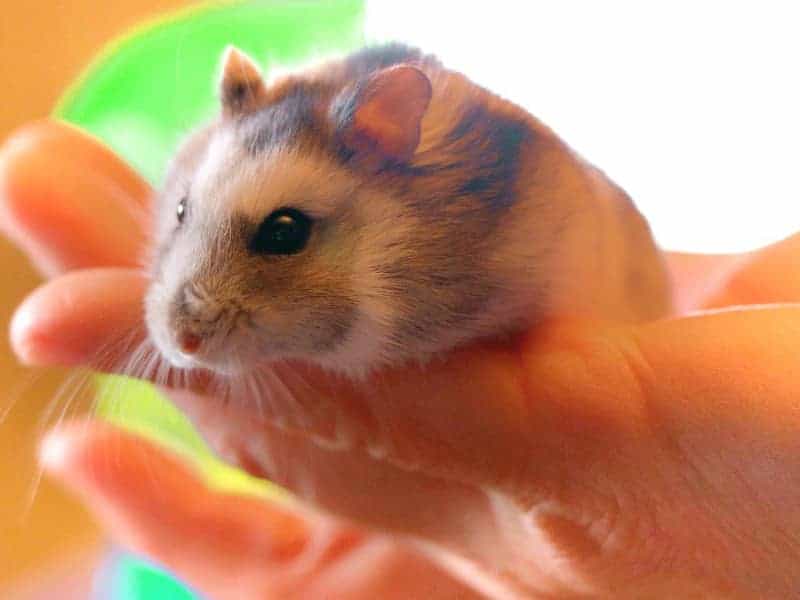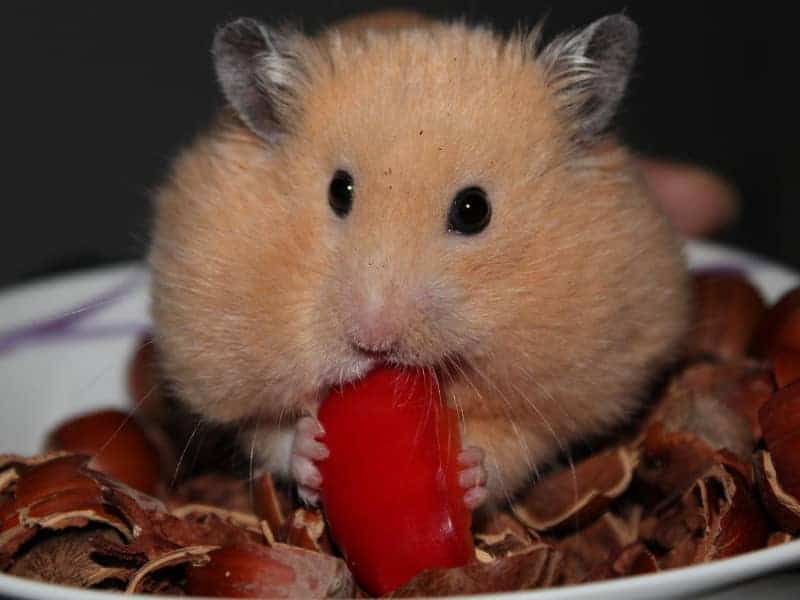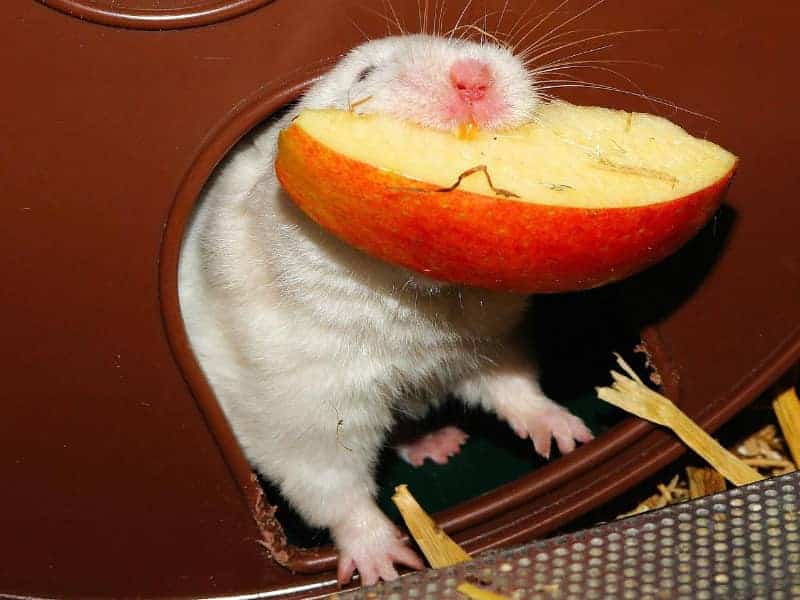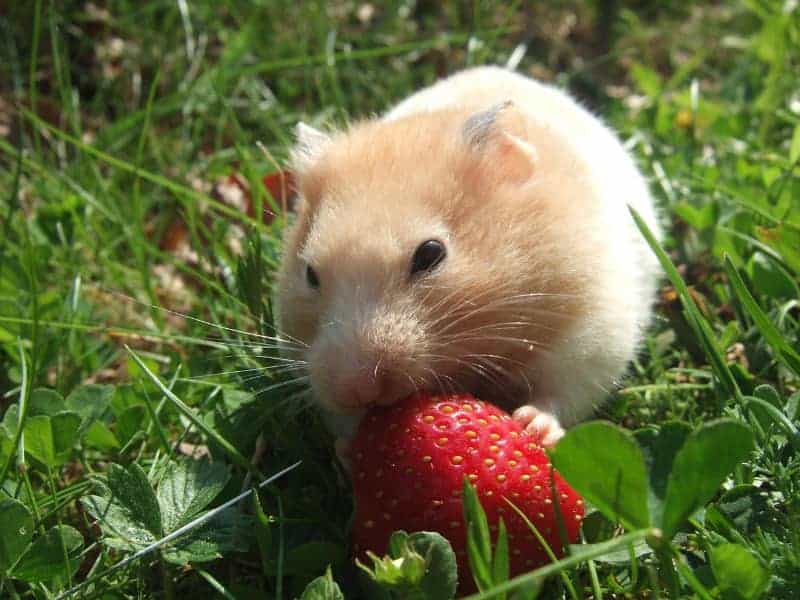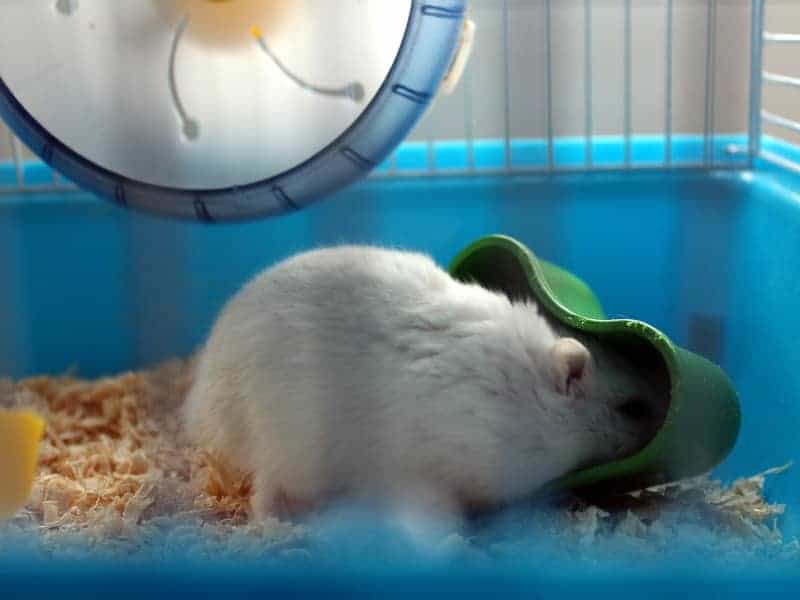
Are hamsters allowed to eat cucumbers?
Yes, your hamster can eat cucumbers. Hamsters love variety in their diet. Therefore, a fresh cucumber is something you can offer your hamster on a regular basis. However, as with almost any food for humans and animals, there are a few things to keep in mind with cucumber. What this is with the cucumber, you will learn in detail and explained here in our article.
- Are hamsters allowed to eat cucumbers?
- Do hamsters like cucumbers?
- How to feed your hamster cucumbers
- How often can a hamster eat cucumbers?
- Are all hamsters allowed to eat cucumbers?
- Are cucumbers suitable as attractants?
- Every day cucumbers for the hamster?
- Cucumbers with or without peel?
- Are hamsters allowed to eat pickles?
- How healthy is the cucumber for the hamster?
- Conclusion: Are hamsters allowed to eat cucumbers?
- Do hamsters like cucumbers?
Do hamsters like cucumbers?
In the wild, a hamster will rarely find cucumbers. However, the hamster is an omnivore and feeds on plants, seeds, insects, fruits and also vegetables. Sometimes it will eat things that it really shouldn't. However, this can quickly have fatal consequences for your little roommate. However, the cucumber is not dangerous for the hamster, if the amount is right.
A large part of hamsters like to eat cucumbers, mainly in the summer a cucumber is a pleasant cooling for your animal and is gladly accepted. The high water content ensures that your hamster is sufficiently supplied with liquid. In addition, the cucumber also has many nutrients that are vital for your hamster and provide him well.
However, the high water content can also become a problem for the hamster. Too much water in the food can lead to your pet getting stomach aches, flatulence and diarrhea. Therefore, you should offer the cucumber only in small bites to your animal.
How to feed your hamster cucumbers
If your hamster has never eaten cucumbers before, you should pay close attention to what your hamster does with the cucumber. He will most likely sniff and taste it. There is hardly a specimen among all the hamster breeds that do not like cucumber. However, the hamster prefers cucumber in the warm season. In the winter he can spurn them already once.
You should wash the cucumber well before eating it. You should do this even if the cucumber is organically grown. Because often invisible germs and dirt adhere to the outside, which you can simply rinse off with lukewarm water. A cucumber can be up to 97 % of water, so if your hamster has not known cucumber before, you should start with small pieces. Non-organic cucumbers should be peeled before feeding.
Start with cubes with an edge length of 1 cm. A normal-sized hamster can easily grab these and nibble on them. At the same time, this size ensures that even a sensitive hamster stomach is not overwhelmed. Watch closely what your hamster does with the cucumber. If he deposits it in his cheek pockets and does not eat it immediately, then you must be careful.
He often deposits the cucumber in one of his food hiding places and leaves it there. The next day at the latest, you should check your hamster's hiding places and remove any pieces of cucumber there. If your hamster eats the cucumber right away, watch him closely to see if his behavior is conspicuous. Above all, you should pay attention to whether the consistency of his stool changes.
How often can a hamster eat cucumbers?
Here it depends on the breed of your hamster. A golden hamster can eat significantly more cucumber than a dwarf hamster. If your hamster has eaten the first cucumber without any problems, as we have described above, then nothing stands in the way of regular feeding. Many hamster owners simply cut off a piece of the cucumber and put this to their animal.
However, we advise against this. Here it is better to cut small cubes and give them in doses. A large hamster can take two cubes with an edge length of 1 cm twice a week without any problems, provided that it has already eaten cucumber before without getting diarrhea from it. Smaller hamster breeds should get at most half of it.
Are all hamsters allowed to eat cucumbers?
Yes, all breeds of hamsters can eat cucumbers. As have already mentioned several times, it is necessary to pay attention to the amount. Because otherwise the tasty and healthy cucumbers can turn into a problem. Especially the sensitive dwarf hamsters react to a too high amount of cucumbers with strong diarrhea. Here you have to be careful and watch your animal carefully, especially in the beginning, when the cucumbers are a new food for your animal.
If your hamster gets diarrhea from the cucumbers, then I put him enough dry food and watch him closely. If after 24-36 hours the diarrhea does not subside, then consult a veterinarian. Possibly even before this time, if your Hamster lethargic in cage should sit and no longer move.
Are cucumbers suitable as attractants?
In the warm season, the cucumber is an excellent attractant to get the hamster used to humans. Because your hamster already the cucumbers and knows how tasty they are, then take advantage of this and attract with it your hamster. To do this, cut small cubes from the cucumber and put them on your fingertips. In this way, you stretch your hand out flat to your animal.
This attraction will not work immediately with every hamster. But hamsters are curious and especially food driven, so this offering of a tasty cucumber will sooner or later lead to the hamster taking the cucumber down from your fingers. You can increase this attraction even more by placing the cucumber piece further back on your hand and the hamster has to use its front feet on your hand.
One day, when he understands that there is no danger from you, he will completely climb on your hand and pick up the piece of cucumber.
Every day cucumbers for the hamster?
No, you should not give your hamster cucumbers every day. On the one hand, the water content of the cucumbers is too high for daily feeding and on the other hand, you surely did not want the same food every day. Therefore, bring variety into your pet's diet. This is especially easy with the hamster, because he eats almost everything you offer him.
Cucumbers with or without peel?
Here it depends on whether the cucumbers are organic or conventional. Organically grown cucumbers only need to be washed and can be fed with the peel. This has the advantage that the many nutrients that are in the peel can be eaten by the hamster. Cucumbers from conventional cultivation have most of the pesticides stored in their peel. Therefore, remove the peel before feeding.
Are hamsters allowed to eat pickles?
No, your hamster should never eat pickles. The reason is that spices are not suitable for your hamster. In the wild, a hamster would never come into contact with these spices and accordingly does not know them. His organism is not prepared to absorb spiced food. Therefore, do not offer gherkins or other foods that are deliciously spiced.
How healthy is the cucumber for the hamster?
Should your hamster get the right portion size and thus eat regularly, but not too much cucumber, then this is very healthy for him. Because in the cucumber are many vitamins, antioxidants and minerals. What ingredients these are we list here on let's start with the vitamins.
- Vitamin A
- Vitamin B1, B2, B6
- Vitamin C
- Vitamin E
- Vitamin K
- Niacin
- Folic acid
In addition to vitamins, there are a number of minerals that are essential for your hamster. These are the following:
- Potassium
- Calcium
- Magnesium
- Iron
In addition, there are the nutrients, which are only a small proportion due to the high water content of up to 97 %. These include:
- Fat: 0.2 g
- Protein: 0.6 g
- Carbohydrates: 1.8 g
- Dietary fiber: 0.5 g
Conclusion: Are hamsters allowed to eat cucumbers?
Yes, you should definitely not deprive your hamster of cucumbers. These offered in portion-appropriate pieces are a welcome snack. However, you should pay close attention to the amount so that your hamster is not too much of it. Otherwise the cucumbers can lead to health problems. This manifests itself in diarrhea and gastrointestinal problems.
Author

-
Garden animal - A life with nature
Welcome to my animal blog! My name is Dirk and I am happy to take you on my journey through the fascinating world of animals and gardening.
Born 54 years ago, I have had an insatiable curiosity for the animal world around me since childhood. Although I have moved professionally in other industries, my true passion has always been animals and nature. It is remarkable how a small garden has become such an important part of my life.
Many of my fondest memories are associated with the animals that share our home. Whether it's the curious squirrels that scurry across the trees in the morning, the colorful variety of birds that visit our feeders, or the busy bees and butterflies that pollinate our flowers, every moment with them is invaluable to me.
This blog is my contribution to share my experiences, discoveries and insights with like-minded people. Here I will share stories of unforgettable encounters with animals, give tips on gardening and creating wildlife-friendly habitats, and take you on my journeys through nature.
Thank you so much for being here!
Cordial,
Dirk aka garden animal
Last posts
- 27. February 2024PetsVeganes Hundefutter – Grün und Gesund?
- 18. January 2024ChickensOregano für Hühner
- November 27, 2023HamsterDiurnal hamsters
- November 24, 2023HamsterHamster hammock

